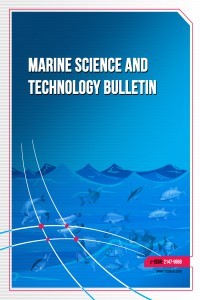
Marine Science and Technology Bulletin
Yazarlar: Ömer Berkehan İNAL, Cengiz DENİZ
Konular:Denizcilik
DOI:10.33714/masteb.827195
Anahtar Kelimeler:Molten Carbonate Fuel Cell,Marine Diesel Engines,Ship Emissions,Air Pollution,Emission Reduction
Özet: Since sea transportation is one of the sources of air pollution and greenhouse gas emissions, so restrictive regulations are entering into force by the International Maritime Organisation to cope with the ship sourced emissions. Alternative energy generating systems are one of the key concepts and fuel cells can be one of the solutions for the future of the shipping industry by their fewer hazardous emissions compared to diesel engines. In this perspective, a Liquefied Natural Gas using molten carbonate fuel cell is evaluated instead of a conventional marine diesel engine for a chemical tanker ship. As a case study, the real navigation data for a tanker is gathered from the shipping company for the 27 voyages in 2018. Emissions are calculated respecting fuel types (marine diesel oil and heavy fuel oil) and designated Emission Control Areas for both diesel engine and fuel cell systems. The results show that more than 99% reduction in SOx, PM, and NOx emissions and a 33% reduction in CO2 emissions can be reached by the fuel cell system. At last, fuel cells seem very promising technologies especially for limited powered vessels under 5 MW for propulsion to use as main engines by complying with current and new coming emission limitations on the way of emission free shipping.
Dergi editörleri editör girişini kullanarak sisteme giriş yapabilirler. Editör girişi için tıklayınız.